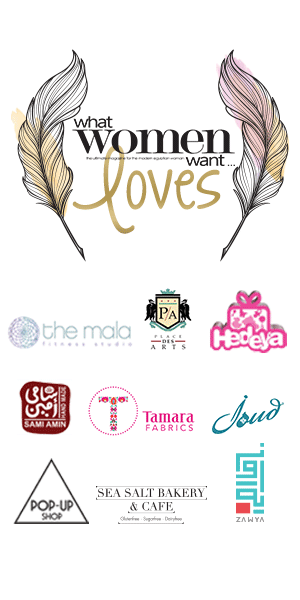When Hagar Magdy had to make the decision between having a stable but unhappy life and happiness and a lot of unknowns, she chose to take the plunge into the happy unknown. This decision included the happiness of many children when she started her initiative, Kablat Arts.
What is Kablat Arts’ Mission?
We have a really important saying that we love to “teach and learn”. What we learn we teach others and those children who learn will teach other children.
Kablat’s mission is to support young people and their families (specifically mothers) to help them express themselves through art whether it’s theatre, contemporary dance, handcrafts, origami, marionette doll shows, or graffiti.
Our mission is also to have a team everywhere in Egypt, in villages, youth centers, and social clubs, made up of women, young people, and children. Furthermore, to train them and get experts who can give mental health and soft skills workshops.
What services does Kablat Arts provide?
We give Art Workshops for children to help them express themselves, and develop movement and handcrafting skills.
We also provide awareness workshops for women through theatre and storytelling. The facilitators who train are the ones who were learning before, we follow a peer-learning technique.

Which groups do you hope to assist the most with your work?
The underprivileged districts groups around Egypt because they haven’t been given the chance to learn or express themselves. Also, young people and children who are faced with violence and discouraged by their families. In addition to refugees from Yemen, Syria, Sudan, and Libya.
We’d like to help everyone, we want to be present everywhere, whenever there’s a chance.
Tell us about yoursef.
I was born in Libya and I live in Alexandria. As a student, my dream was to work in Tourism and travel the world. I discovered my passion for photography and from there, I realized that I had an insatiable thirst for knowledge. I learned how to be a theatre facilitator, working with children in public schools. Then, I worked with female prisoners and took psychology workshops to understand what they’ve have been through. Additionally, I took contemporary dance, interactive theatre, filmmaking, and drums classes. At some point, I had decided that I wanted to try doing everything I haven’t done before. Not just that, but also teach others.
What inspired you to start Kablat Arts?
I never enjoyed school because of the way my teachers handled things. The way they gave punishments in the form of beatings for everything, and all the pressure. I enjoyed P.E and music the most and was never “good” at school. You know the student who sat in the back and got yelled at all the time? Those children need someone who cares about them.
I decided I would do the opposite of what I experienced at school. One thing I enjoyed doing was telling stories on stage. It made me feel heard and that’s really important for building self-confidence. It made me feel like there was hope that I could be part of something bigger than myself. These were all personal reasons that motivated me to keep urging these children to express themselves and that’s how Kablat got to making so many of its workshops. We took these programs all over Egypt, to Alexandria, Marsa Alam, Aswan, Siwa, Damietta, Damanhour, and Fayoum and we’re still going.

What Are the Challenges You Faced?
- The biggest challenge I faced was when I was working in sales for 5 years, all the while thinking I want to quit and work with kids the way I want to and do something I love. Basically, the struggles of do I go on, unhappy, or risk everything and follow my dreams.
- For the initiative’s challenges, a major one was finding a stable team. Also, a team that would be able to travel, there are usually only one or two people who could travel using their own funds because it’s volunteer-work. Also, we used to have a space of our own but now we don’t, so we’re always in between places.
- The challenges that come with people and institutions always treating us as a start-up rather than an established legal entity. As a result, most of the time we are not given credit for our work with children and instead credit is given to the big institution we partner with.
From your perspective, how does art help heal children?
Children feel comfortable enough to tell stories of their abuse by teachers or people they trust because they know that art is free of judgement. Although the stories are often tragic, when it is artistically told it aids in the healing process.
Art is a freeing medium, there are no limits with art.
So, they feel empowered to tell the full story without being hindered by “3eibs” and “Harams”. The healing happens by repetition. In their first performance, their voices tremble, but with time they grow louder and stronger as they make peace with the pain they experienced.
Where do the workshops take place?
Everywhere! In streets, public squares and gardens, youth centers, clubs, public schools, private associations, International institutions, Art Institutes, and even a big enough backyard.

What do you hope to achieve in the coming years?
I want to reach the largest number of women and children who have been abused. We’re planning to be a bigger entity which has a presence all over Egypt and abroad. The youth we’ve trained need to take charge of the initiative and take big decisions and have their passion drive them forward and for them to do what they love.
Also, to have a community school, with trainings, workshops, programs, and movies. It would follow an active learning approach that is based on research and skills.


